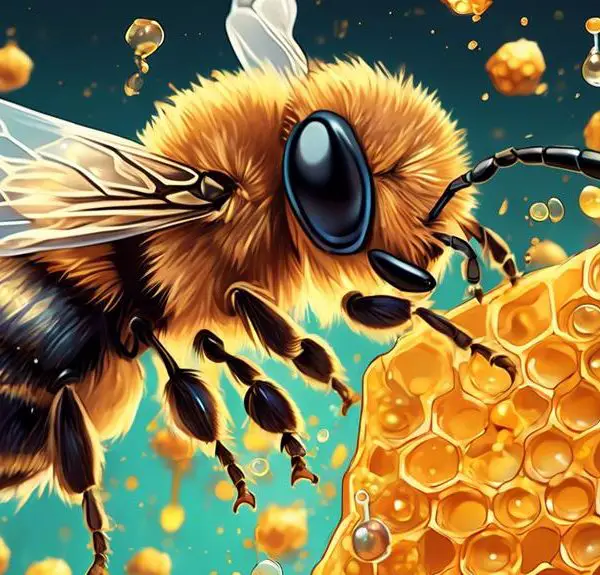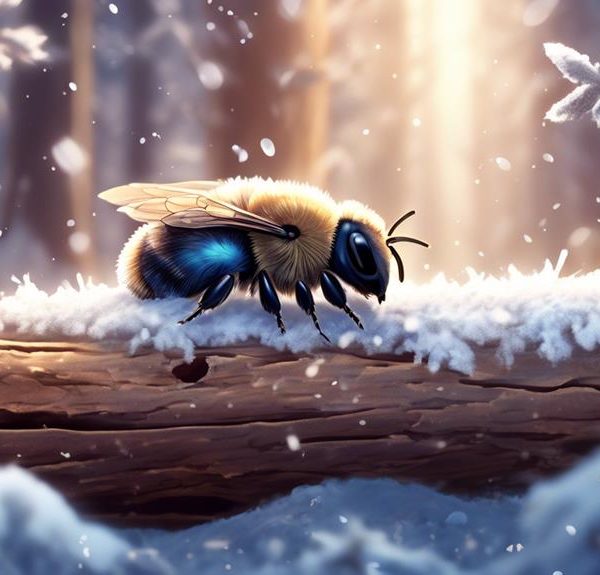Learn whether UK's mason bees pose a sting threat, while uncovering fascinating insights about their behaviour in your garden.
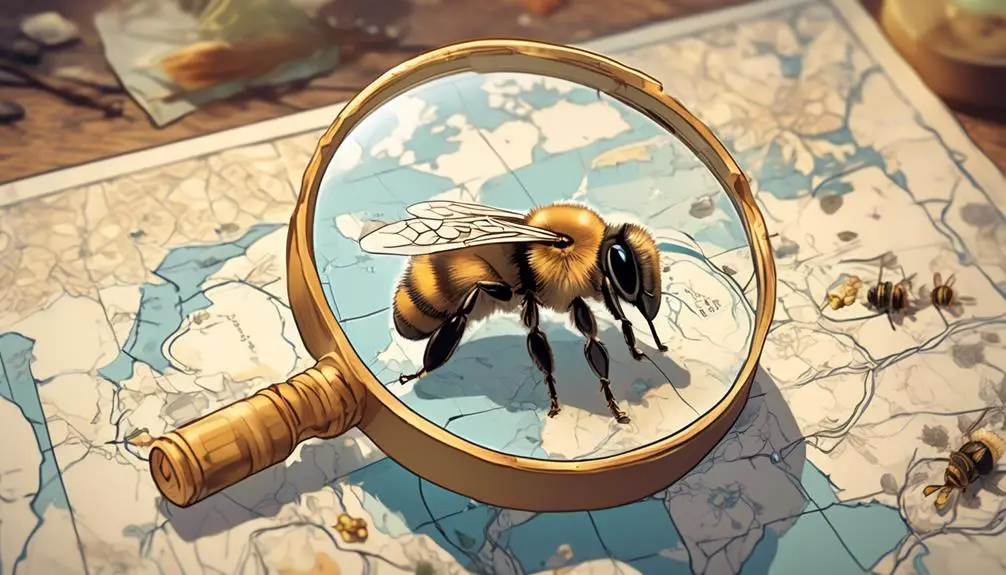
Can Mason Bees Sting Uk?
Imagine you're enjoying a peaceful afternoon in your UK garden when a tiny mason bee lands on your arm. You freeze, remembering old tales of painful bee stings, and wonder, can these little creatures sting?
As a homeowner, gardener, or simply a nature enthusiast, it's vital to understand the behaviour of the wildlife you share your environment with. So let's dive into the world of mason bees, explore their habits, and answer that burning question: should you fear a sting from a UK mason bee?
Key Takeaways
- Mason bees are capable of stinging, but it is extremely rare.
- Their stings are less painful than a mosquito bite.
- Mason bees are solitary creatures and do not live in large colonies like honey bees.
- Mason bees play a crucial role in pollination and contribute significantly to biodiversity in the UK.
Understanding Mason Bees
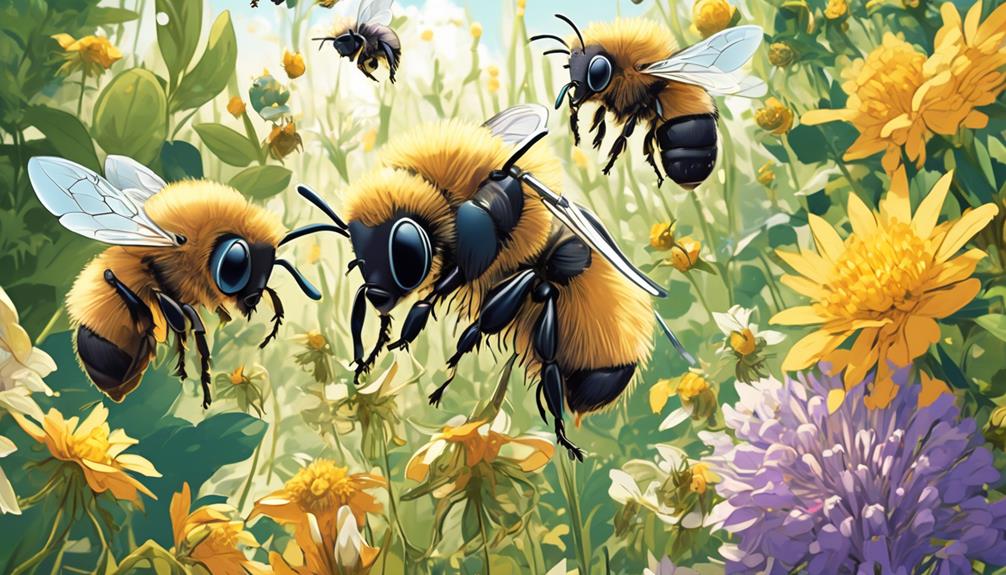
To fully grasp the nature of Mason bees, it's crucial to delve into their unique characteristics, lifecycle, and habits. You've probably noticed these bees busily working during the spring season. Mason bees, scientifically known as Osmia, are solitary bees, meaning they don't live in hives like their honeybee counterparts. Instead, you'll find them nesting in small crevices or tubes, often in man-made structures.
These pollinators have a metallic blue or greenish hue, distinguishing them from other bees. Unlike honeybees, Mason bees are docile and rarely sting unless they're in imminent danger. Their lifecycle is compact, mainly taking place in the spring. During this period, females lay eggs in their chosen nests, each separated by a mud partition – hence the name 'Mason.'
Their solitary nature doesn't hinder their efficiency as pollinators. In fact, you'll find that Mason bees can pollinate plants more efficiently than honeybees. This is due to their behaviour of visiting numerous flowers in quick succession, thereby transferring a significant amount of pollen in a short time.
Understanding these traits of Mason bees can help you appreciate their role in our ecosystem.
The Sting: Myths and Realities
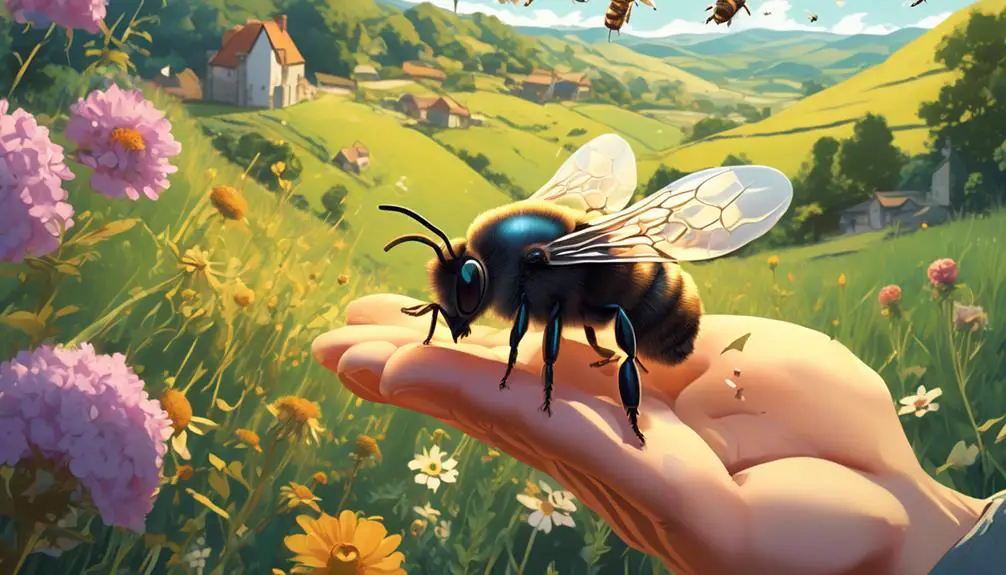
Let's debunk the common misconception: Mason bees are indeed capable of stinging, but it's extremely rare and only occurs when they feel threatened. Unlike honeybees, mason bees aren't generally aggressive. They're solitary creatures, focused on their work rather than defending a hive.
Now, let's talk facts. If a mason bee stings, it's unlikely you'll feel much. Their stings are considered less painful than a mosquito bite. This is due to their stingers being less developed and their venom being weaker than that of other bees. In fact, for most people, a mason bee sting doesn't result in any significant reaction.
However, it's essential to understand that reactions to stings can vary greatly among individuals. Some people may experience mild discomfort or swelling at the sting site, while others may have allergic reactions. Therefore, it's always a good idea to avoid handling bees unless necessary.
To summarize, while mason bee stings can occur, they're very rare and usually not a cause for concern. Their peaceful nature and focus on pollination outweigh the minimal risk of a sting. But as always, respect and caution around any wildlife is a good rule of thumb.
Mason Bees Vs Honey Bees
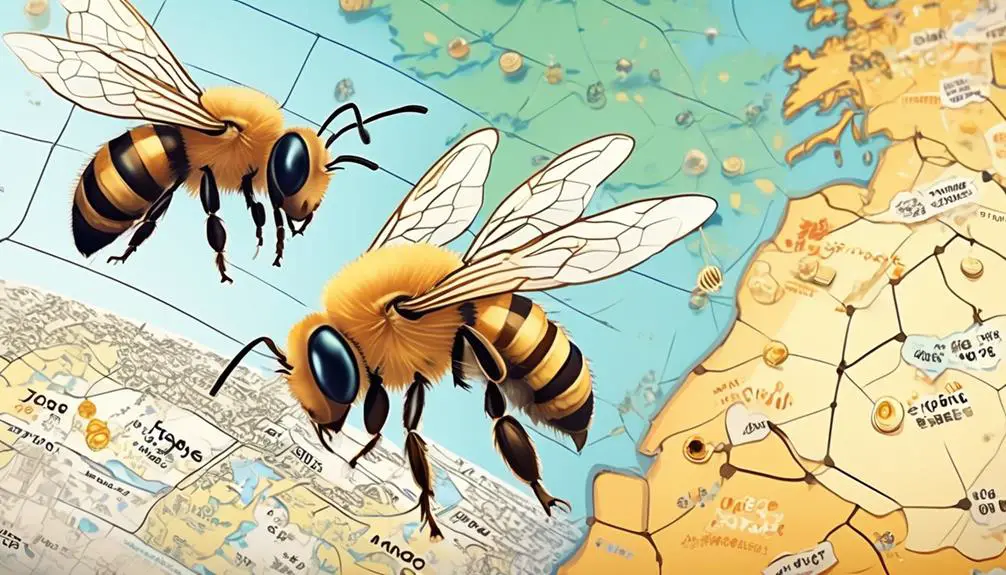
While you may now have a better understanding of mason bees and their sting, it's also interesting to compare these industrious insects with their more well-known counterparts, the honey bees.
Mason bees are solitary creatures, each female is fertile and makes her own nest. They don't produce honey, but they're fantastic pollinators, in fact, they're significantly more efficient at pollination than honey bees. This is due to their hairy bodies that easily pick up and spread pollen.
On the other hand, honey bees live in large colonies with a single queen, and several thousand worker bees. They're best known for their honey-making abilities, but they also play a crucial role in pollination. Their stings, unlike the mason bees', can be quite painful and are sometimes even fatal in case of an allergic reaction.
The Role of Mason Bees in UK Ecosystem
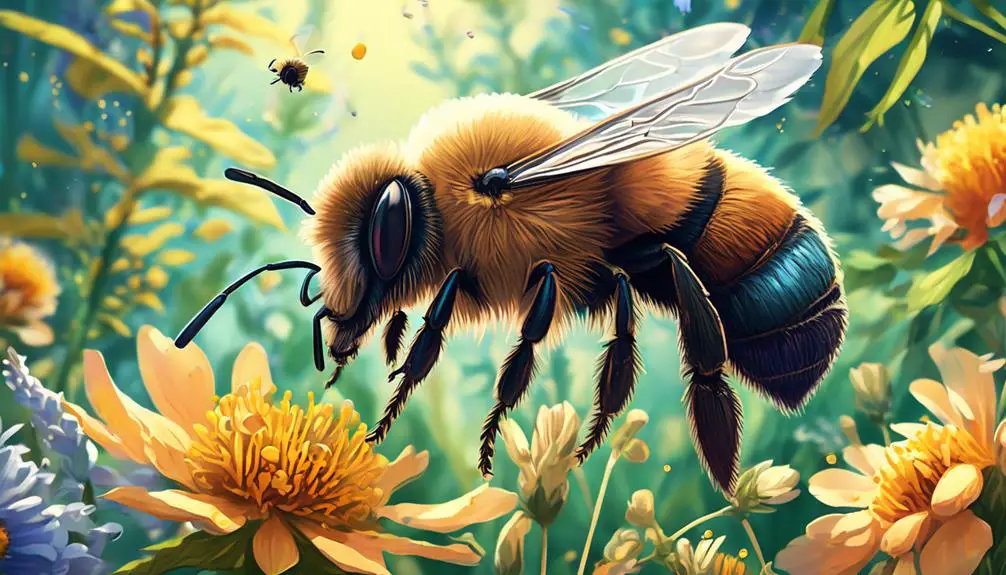
In the intricate web of the UK ecosystem, you'll find mason bees playing a pivotal role, particularly in pollination, contributing significantly to the biodiversity of the environment. Unlike honeybees, these solitary critters don't produce honey, but they're superior pollinators. Each mason bee can pollinate as much as a 100 honeybees can.
You might be wondering how they manage this. Well, it's all down to their fuzzy bodies which gather more pollen and their behaviour of visiting many plant species. They aren't as selective as honeybees, which makes them excellent cross-pollinators. Moreover, their nesting habits in hollow stems or holes in wood provide habitats for other insects, enhancing the ecosystem's balance.
Their importance isn't just ecological; it's economical too. You see, mason bees pollinate many of our food crops. Without them, yields would decrease dramatically, affecting the UK's agricultural sector.
However, mason bees are facing threats from habitat loss and climate change, which could have detrimental effects on the UK's biodiversity and economy. Hence, it's crucial to understand their role and promote their conservation. Their survival is intertwined with ours.
How to Coexist With Mason Bees
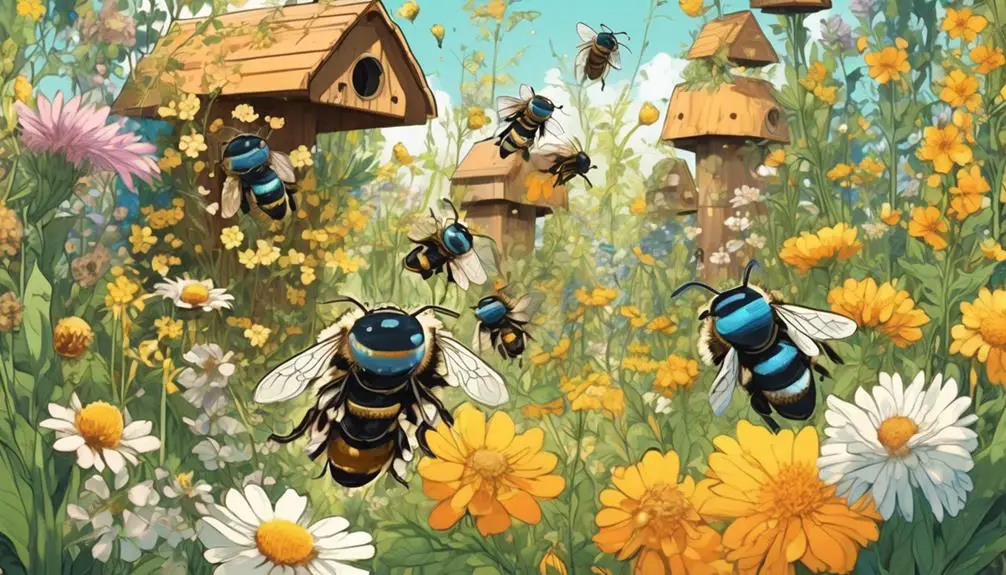
Understanding how to coexist with mason bees could play a crucial role in their conservation and, in turn, bolster our ecosystem. Despite their harmless nature, people often fear these bees due to a lack of information. Educating yourself about their behaviour, lifecycle, and benefits is the first step towards peaceful coexistence.
You can start by setting up a mason bee house in your garden. These bees aren't aggressive and won't sting unless threatened. They're solitary creatures, so they won't swarm your property. They prefer nesting in hollow reeds or holes in wood, so ensure the bee house provides these conditions.
Next, plant native flowers. Mason bees need pollen and nectar, and local plants are their preferred source. They're early spring bees, so ensure your garden blooms in this period.
Avoid using pesticides. They can harm or even kill these beneficial insects. If you must use them, opt for organic ones and apply them late in the evening when bees are less active.
Lastly, don't be afraid of them. Mason bees are docile, and their presence signifies a healthy ecosystem. Embrace their existence, and you'll find cohabiting with them is beneficial and rewarding.
Conclusion
So, can Mason bees sting? Sure, but they're not likely to. These docile creatures greatly contribute to the UK ecosystem, unlike their honey bee counterparts. They're more interested in pollinating your garden than causing trouble.
It's crucial to coexist and appreciate their role. Don't fear these little pollinators but rather, welcome them. After all, a sting from a Mason bee is rare and far less painful than that of a honey bee.

